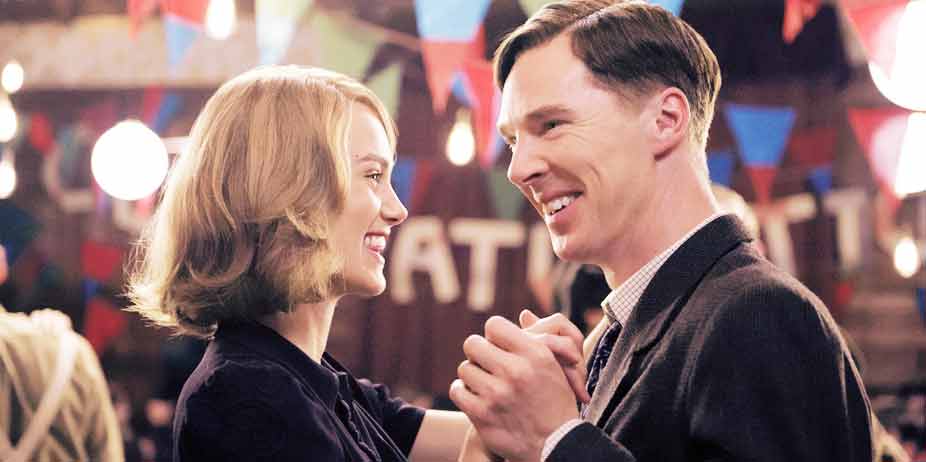 The
Imitation Game (2014)
The
Imitation Game (2014)
One of the more stirring, interesting, and remarkable films of the last decade, The Imitation Game is more fiction at times than fact but assisted along by wonderful and moving performances.
After the second world war, the office of a local eccentric professor is broken into, leading a police constable to find Alan Turing (Benedict Cumberbatch) strangely resistant to assisting the police in finding the thief. His suspicions ignited, he begins to question further into the man's background, leading to his past, when a young narcissist informs the head of Bletchley Park (Charles Dance) that the government needs him and his magnificent brain to help crack the German enigma codes. Alan's lack of people skills alienates him from his coworkers, and sets his superior against him when he goes over his head to clear his intention to build a "thinking machine" with none other than Winston Churchill.
Enigma has the greatest minds in the world baffled as an unbreakable code with so many variables that they have to calculate into the millions in order to even come close to figuring out the machine. Alan's intention is to build a "computer" that will do the work for them in much less time. Along the way he meets Joan Clarke (Keira Knightley), a brilliant young woman who can calculate even faster than Alan but owing to her sex, must hang out with Bletchley's "secretaries." The story weaves between the present and the police investigation, the earlier past with enigma, and occasionally delves into Alan's traumatic childhood at boarding school and his friendship with a boy named Christopher, later immortalized in his machine.
While the story is stirring, it has come under fire for its fictionalized elements, including the implication that Alan Turning had Aspergers Syndrome. It is an attempt to tell a semi-truthful story about a remarkable man, and the father of the modern day computer, a massive machine that takes up half the room. The secrets of these people and their lives did not come out until fifty years after the war had passed, which means the storytelling style of having Alan confide in the policeman isn't entirely respectful to his memory of his code of silence. These minor flubs are understandable, but without knowing much about the man, I found it a truly moving experience, aided in large part by Cumberbatch's remarkably nuanced performance. The film does establish his homosexuality as a fact, but does not explore it so much as it exploits the unfairness of the society he lived in that sought to impede his remarkable mind with chemical "punishment."
Considerably less problematic than many other films about geniuses in terms of potentially offensive content (the swearing is at a minimum), The Imitation Game may succeed in what it intended to do ... that is, to build empathy for and draw attention to the fascinating mind and accomplishments of Alan Turing.
Sexual Content:
References are made to (illegal) homosexual activities (a
man soliciting other men for sex; mentions of gross indecency) and chemical
castration.
Language:
One abuse of Jesus' name, mild profanities.
Violence:
Boys beat up and put another boy under floorboards at
school; as an adult, a man is assaulted a few times and punched or slapped in
the face. War reflections show ships burning at sea and bombs going off.
Other:
Intense themes involve persecution of homosexuals and
sacrificing lives "for the greater good."
